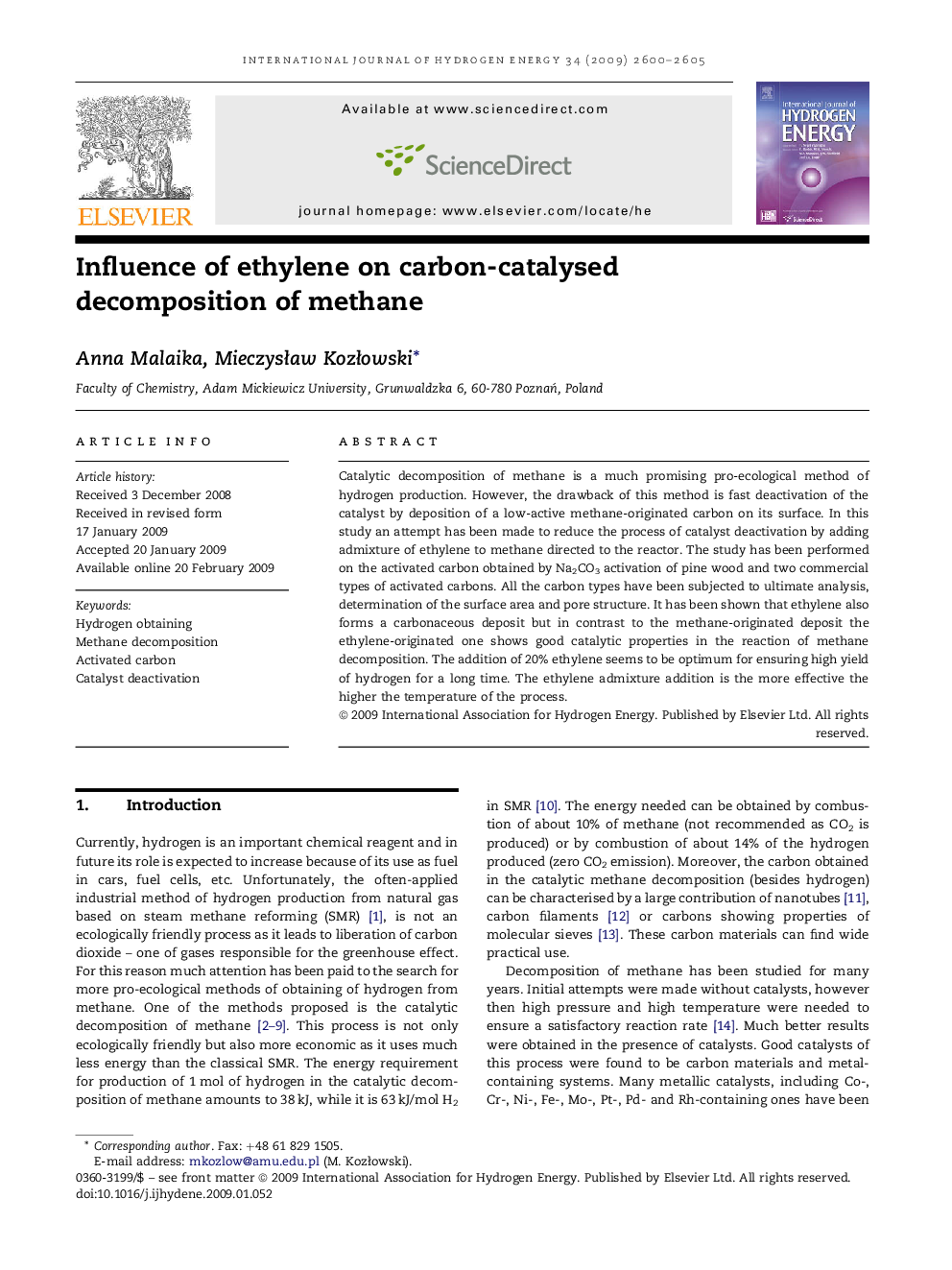| Article ID | Journal | Published Year | Pages | File Type |
|---|---|---|---|---|
| 1281190 | International Journal of Hydrogen Energy | 2009 | 6 Pages |
Catalytic decomposition of methane is a much promising pro-ecological method of hydrogen production. However, the drawback of this method is fast deactivation of the catalyst by deposition of a low-active methane-originated carbon on its surface. In this study an attempt has been made to reduce the process of catalyst deactivation by adding admixture of ethylene to methane directed to the reactor. The study has been performed on the activated carbon obtained by Na2CO3 activation of pine wood and two commercial types of activated carbons. All the carbon types have been subjected to ultimate analysis, determination of the surface area and pore structure. It has been shown that ethylene also forms a carbonaceous deposit but in contrast to the methane-originated deposit the ethylene-originated one shows good catalytic properties in the reaction of methane decomposition. The addition of 20% ethylene seems to be optimum for ensuring high yield of hydrogen for a long time. The ethylene admixture addition is the more effective the higher the temperature of the process.
